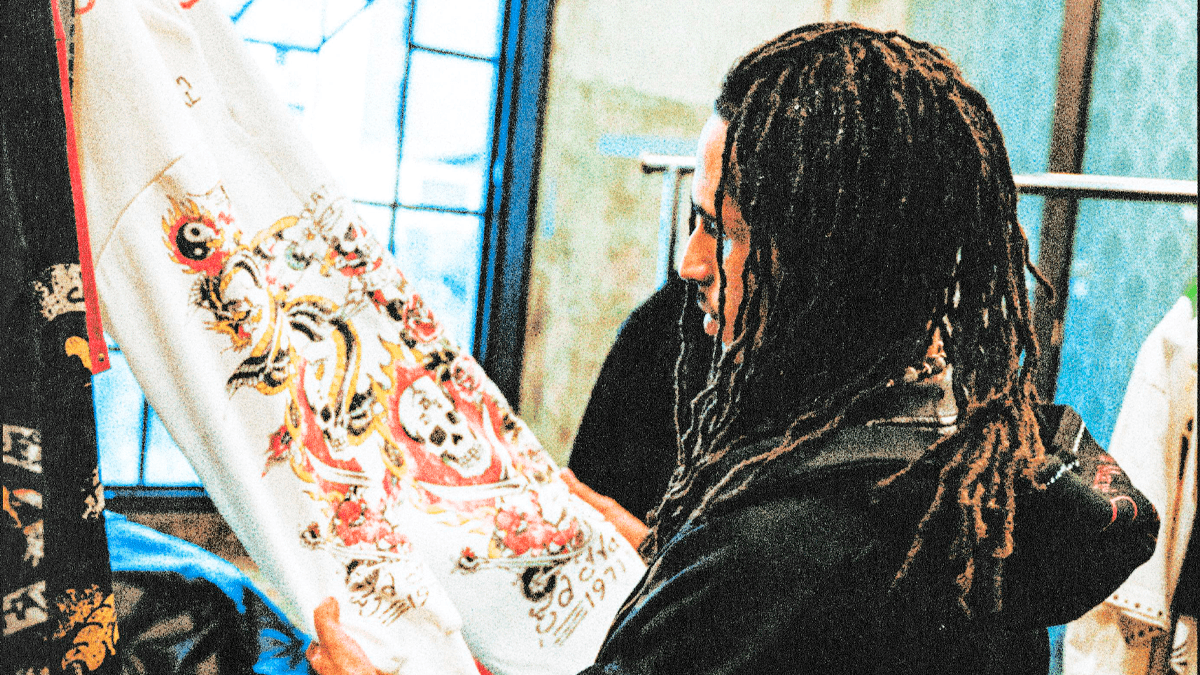In debt, but with 2 thousand reais sneakers on my feet.
How excessive consumption can negatively impact your life and really screw you over (a lot) in the long run.
Imagine the scene: the drop from that brand has come out and you were one of the few who managed to buy a couple of pieces - you were kind of short on cash, but you put everything on the credit card. After all, in 12 installments it feels like nothing. Two weeks later, that other brand launches an amazing sneaker in collaboration with a designer you love. In less than 10 minutes you go from “man, I’m out of cash, I used up all my limit these days” to “I’m going to use the overdraft, next month my salary comes in and then I’ve settled it, I won’t even feel it”.
The next month comes and the bank debits (a good) part of your money with interest. Obviously. Also obviously, the bill for the credit card you divided up from the other purchase has already arrived – and in this scenario, you have two options:
Pay, be broke to the point of not being able to go out for a beer and wear the new kit or;
Be reckless, pay the minimum and enter a vicious cycle that will get your name on the credit bureau.
Does this sound familiar to you?

Illustration: Laro Lagosta
A large part, to be specific 12 million, of young Brazilians are in debt, which means you are not the only one who is buying non-stop (and unable to pay). Many people deal with the same headache of having accumulated debts without being able to see a way to pay them off and get rid of it.
The blame is not yours. I mean, not 100% of it.
“It's not a matter of luxury
It’s not a matter of color
It’s a matter that abundance
Delights the sufferer
(…)
Unconsciously comes to my entire mind
In the sneaker store the look of the happy partner
Of being able to buy the blue, the red
The counter, the mirror
The stock, the model...”
The Racionais wrote the lyrics 18 years ago – for those who never had access to much (a strong shoutout! to those who grew up getting one pair of sneakers a year and wore clothes handed down from older siblings or cousins), having buying power is essential in this culture that preaches the need to have this and that to feel included.
For us, by the way, to whom everything has always been denied, finally gaining access to what seemed so distant is sending a message to the world, as if we were saying “Hey? Now I’m styling too! Wasn't it you who said that this wasn’t for me?”. For those who grew up poor and today can, in some way, buy these desirable items, consumption is tied to a narrative of self-affirmation, a need to be part of something previously unattainable.
These factors bring back a ton of insecurities that we had, such as the insecurity of not being noticed and accepted. Then we grow up, finally manage to have that (even compromising more than we should of our income) and feel part of the club.
All of this without mentioning that the very industry hypebeast, obviously profits from the imposition of standards of interest and frequent incentives to consume.

Photo: Hypebeast
As we mentioned above, the main tool that drives this (toxic?) relationship between streetwear brands and consumers (you) is the “drop” (a sales model where products are sold in a continuous flow of launches).
The adoption of this model by Supreme took off and made other brands also adopt this strategy which works well because it creates anxiety, where the wait is short and always renews. Everything is designed to drive you crazy over a piece that, just seconds ago, you didn’t even know existed – indeed, welcome to the logic of luxury through scarcity, which you can see as “marketing focused on exclusivity” or “I have it and you don’t”.

Photo: Jack O’Brien
The problem with this frantic consumption is that, not always, does the balance add up and then we end up with what is famously known as a bad credit score - even with a wardrobe full of expensive kits. In the short term, the negative impact is a lot of accumulated debts, no prospects of being able to pay them off, and living without money even to have a drink at the bar next to the Void. In the long term, all of this interferes with the achievement of bigger plans: going to college, starting your own business, taking an international trip, buying a brand new Celta. It negatively affects our independence and even the direction that our lives can take.
“It's for us to have autonomy
Don’t buy chains, start a business
It seems like I'm taking away
But in reality, I'm inviting you to be a partner
Think well
Get your brothers out of the dirt
Your mom quits her job
Or are you going to be just another Black
Who lived life in vain?
Who raises the question is Djonga: imagine getting to the end, looking back, and realizing you never did anything “extraordinary” because all the money that came in went for a new piece of clothing. Unless you have money to do everything without going through suffering, the dialogue presented in Hat Trick is something you should think about.
But what now? Now that we can, in a way, shouldn’t we be spending? Is it forbidden to spend on clothes and sneakers?
Not necessarily.
You can consume, of course, including having access to so many things and finally being able to realize the dream of shopping at Farfetch is cool indeed. You cannot deny the good feeling of wearing a shirt from Acne Studios or putting on a Vapormax. The right to be part of this movement is also ours, but the whole concept fades and loses meaning when we spend beyond our means.
What to do then?
The groups we belong to and the things we surround ourselves with exert a high degree of influence on our decisions. Therefore, the ideal is to filter what we consume in terms of content - where do your stimuli come from? Your triggers to buy? What impacts you daily?
Moreover, it is also important to be informed, understand the concept behind fashion brands, identify the proposal of the pieces, and use what expresses our personality, but without allowing that to interfere too strongly with the relationship we have with ourselves and in our personal definition of who we are. Take care of yourself and understand that you don’t need to have a low score to have high self-esteem. Stop linking well-being and self-confidence with the number of designer items in your drawers.
Brands reflect our values, our culture, represent what we like and believe in. But always remember: you remain yourself without them.
See others like this




